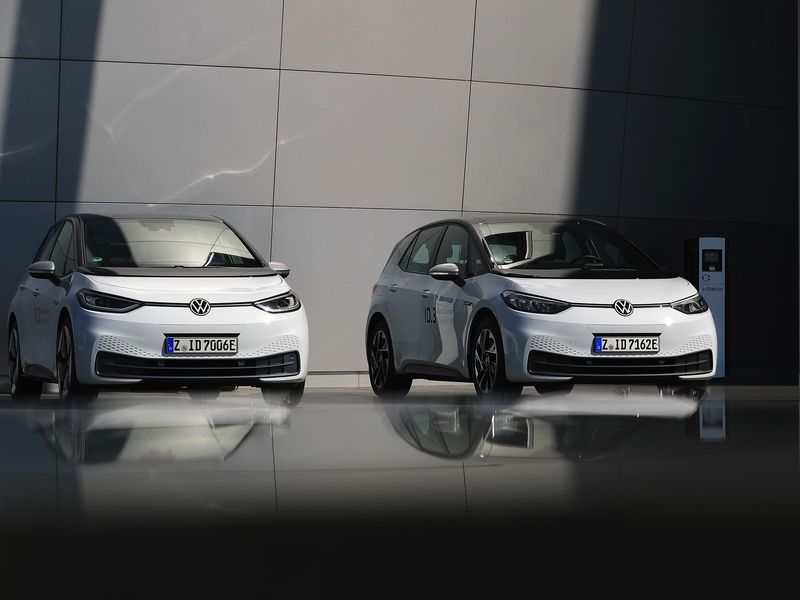
A teardown of Volkswagen AG’s first dedicated electric vehicle found it measures up favorably to Tesla Inc. models in several key aspects.
The deep dive into the ID.3 by UBS Group AG analysts found the platform underpinning VW’s EV models will be fully cost competitive with Tesla and boast best-in-class energy density and efficiency. Analysts led by Patrick Hummel called the car “the most credible EV effort by any legacy auto company so far.”
UBS’s assessment is the latest positive development for an EV that got off to a bumpy start last year. Production hiccups, software glitches and disruptions related to the COVID-19 pandemic plagued the ID.3’s launch and cast doubt over the ability of traditional automakers to field products that can compete with the likes of Tesla’s Model 3. While other incumbents have converted existing combustion-engine cars into EVs, VW opted to take a more radical approach in the wake of its emissions wrongdoing.
VW is primarily targeting Europe with the ID.3 hatchback, which will be flanked this year with its crossover sibling, the ID.4. The latter model will be produced in China and the U.S. in addition to Germany. VW group brands Audi, Skoda and Seat also will introduce vehicles this year that share the underpinnings to boost economies of scale. Ford Motor Co. also will license VW’s modular EV platform to make a compact car in Europe, adding additional volume.
VW plans to at least double the share of its sales that are fully electric this year to between 6 percent and 8 percent, suggesting it might narrow the gap with Tesla by boosting deliveries to roughly 700,000 cars. Tesla expects to hand over at least 750,000 vehicles in 2021.
“VW might not be the Apple, but the Samsung of the EV world, with profitable, high-volume EV brands,” UBS’s Hummel said. He estimates the ID.3’s gross margin is around 15 percent, “already almost on par” with VW’s combustion-era Golf model.